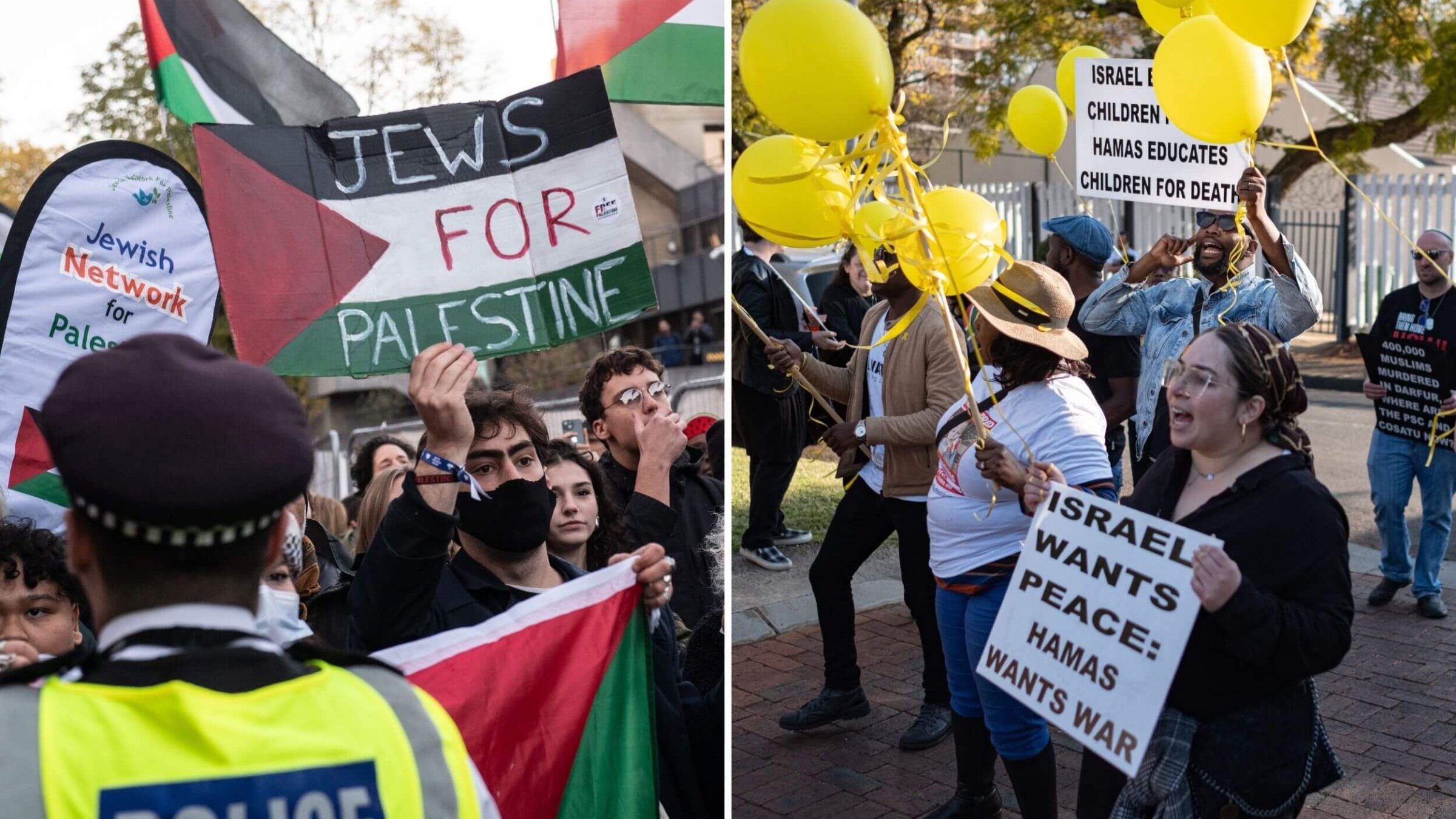There’s a biblical precedent for the rifts opened by Oct. 7 — it should alarm us all
Can we stop testing one another for ideological purity?

Can Jews still talk to one another, despite our differences? Photo by Guy Smallman/Emmanuel Croset/AFP/Getty Images
As we mark the second anniversary of the Hamas attack of Oct. 7, 2023, we will mourn the victims of Hamas’ barbarism that day. We will pray and remember. We will petition for the release of the hostages and an end to the war.
And even as we use our words to mourn, we must recognize that language has itself become a casualty of war, dividing our own Jewish communities. Words have lost their meaning; as many others have noted, they’ve become signals of allegiance. Terms like “Zionism,” “anti-Zionism,” “genocide,” and “intifada” deepen mistrust within our Jewish communities, and fracture the bonds of Jewish peoplehood that should unite us in these perilous times.
This is not new.
The Book of Judges recounts a war between the tribes of Gilead and Ephraim, during which the Gileadites used a linguistic test: They asked travelers to say the word “shibboleth.” Ephraimites, unable to pronounce the letter “shin,” said “sibboleth” and were killed. The word’s meaning didn’t matter — only its sound. Language became a tool to distinguish friend and foe.
Today, we are again only listening for the “shin” — the linguistic suggestion that someone is with us, or against us.
When someone declares that they are an “anti-Zionist,” I, like many others, feel instinctually alarmed. That term has been used by groups calling for Israel’s destruction, often in tandem with phrases like “from the river to the sea” or “globalize the intifada,” that carry associations of violence against Jews. Since Oct. 7, they’ve become rallying cries that evoke deep fear in the Jewish community.
Too often, in the past two years, when I’ve heard these words from friends and family in the Jewish community — or when people have failed to condemn them — I’ve reacted before thinking. I haven’t asked what the speaker means. I haven’t truly listened. I’ve only heard the enemy speaking — the missing “shin.”
My friends and extended family increasingly challenge my reaction as hypocritical.
They ask how I can call myself a “proud Zionist,” as I do and I am, when extremists invoke Zionism to justify the devastation of Gaza and displacement of Palestinians. They know I am distraught by the ongoing destruction of the war. They know I oppose policies that call for the displacement of Palestinians, and have condemned the continued targeting of Palestinians in the West Bank. They know that I am a Zionist because I believe that all peoples have the right to self-determination in the land of their historic origins — including the Palestinians. They know I am devastated by the humanitarian crisis in Gaza, even if we disagree on its causes.
They accept my sincerity, but they think I’m being naïve.
To them, the term “Zionism” is increasingly associated with violence against Palestinians, and an abandonment of democracy. “Zionism,” they explain, no longer means what I believe it does. When they hear someone say they are a Zionist, they react. They hear the enemy speaking. They only listen for the missing “shin.”
This dynamic is tearing families and communities apart. Leaders are cheered or vilified based on whether they use or avoid certain terms, as if they are scoring points at a sporting event in a stadium. But cheering and vilification do little to foster understanding, or build toward actual solutions to release the hostages or end the war.
We would do better to react less and listen more. When someone says, “From the river to the sea,” we might ask what they mean — not instinctively judge them. Admittedly, some don’t know which river or sea the phrase refers to. Rather than mocking their ignorance, we can ask why they use the phrase. Often, they simply see it as meaning that all people should be treated with dignity and given equal rights. I hope that by reacting with curiosity, I’ll invite curiosity in return, and they may become more open to hearing why the phrase itself is so deeply unsettling to many of us — and how it has been used by antisemites to incite violence.
When I stop reacting to the missing “shin,” I can learn that some anti-Zionists don’t reject Jewish self-determination in our historic homeland. Rather, they believe Israel’s government has forfeited its moral legitimacy through its actions in Gaza, its efforts to erode democracy, and its treatment of Palestinians — concerns that many Zionists share. Their objection is not to the Jewish right of self-determination in the land of Israel. They object to the Jewish claim to sovereignty — control of government with special rights and privileges.
Listening does not need to mean agreeing. When I talk to anti-Zionists, we often come out differing: For instance, some who call themselves anti-Zionists advocate for a single state with equal rights for all, an outcome I believe would lead to civil war and humanitarian devastation, imperiling the rights of both Jews and Palestinians. But by not automatically assuming that someone’s professed anti-Zionism must mean their support for the destruction of the Jewish people, we can discuss those differences openly and productively.
We must reclaim our language, and with it the sacred bonds of community that are perilously fraying. It’s time to stop testing one another, as the Gileadites did the Ephraimites. By choosing our words carefully and responding charitably within our own homes, families, and even within congregations, we can take a first step in cultivating understanding and rebuilding trust.















